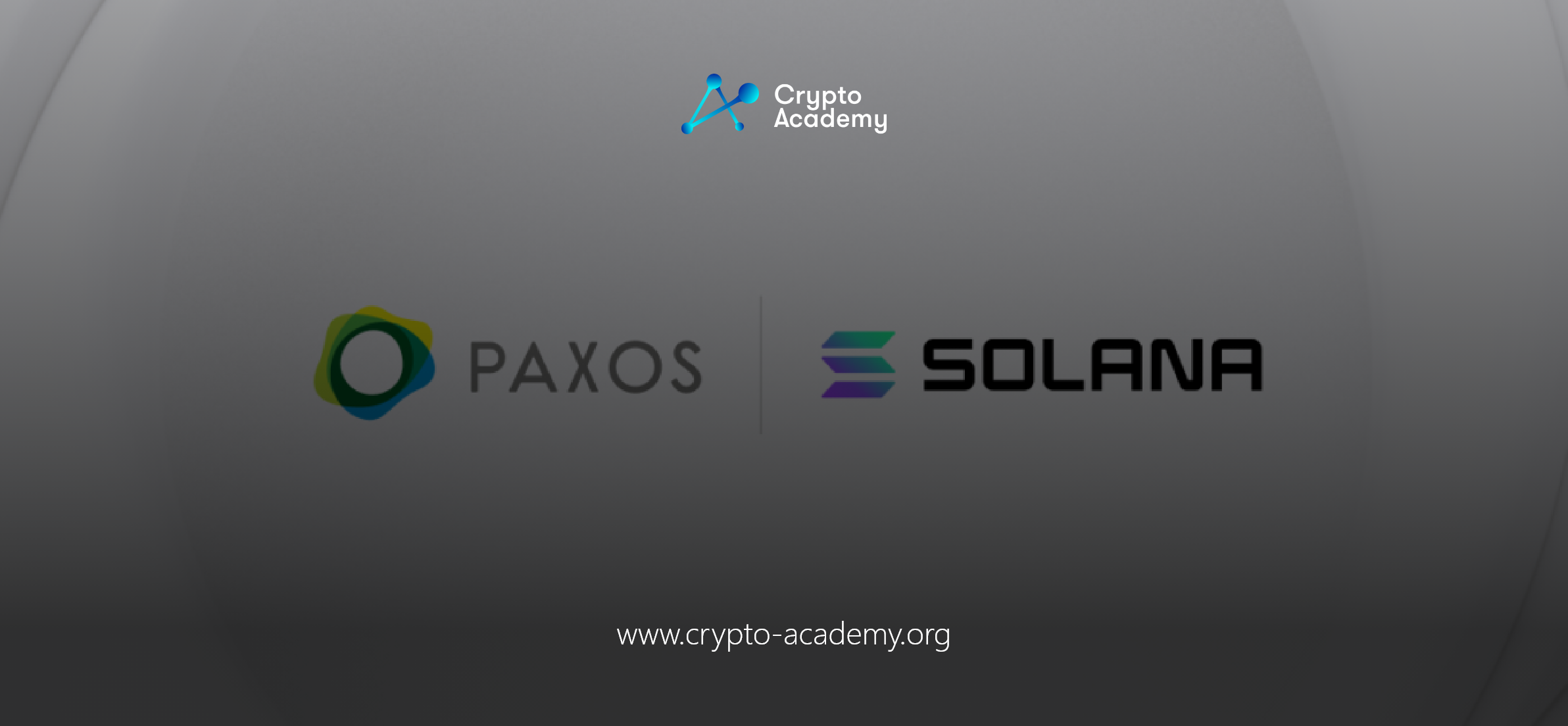Paxos Secures Approval to Launch on Solana Blockchain

Paxos receives DFS approval to launch its stablecoin on the high-speed, low-cost Solana blockchain, expanding beyond Ethereum.
Recently, Paxos, a renowned stablecoin issuer, has recently obtained the green light from the New York Department of Financial Services (DFS) to expand its operations to the Solana blockchain. This marks a pivotal step for Paxos, primarily known for its Pax Dollar (USDP) stablecoin, which until now was exclusively issued on the Ethereum network.
Expansion to Solana
The DFS’s approval for Paxos to operate on the Solana blockchain represents a strategic advancement for the company. Previously, Paxos had to adhere to DFS restrictions, limiting its operations to the Ethereum network. The scheduled launch date for Paxos on Solana is January 17, 2024, signaling a new chapter in the company’s journey.
Pax Dollar stands out in the market as a fiat-collateralized stablecoin. This means that it is backed on a 1:1 ratio by the United States dollar, ensuring stability and reliability for its users. The transition to the Solana blockchain is not just a mere expansion but a calculated move considering Solana’s technical prowess.
Solana is a layer-1 protocol with fast transaction speed and low operational costs. It can process an impressive 50,000 to 65,000 transactions per second (TPS), significantly overshadowing Ethereum’s capability of approximately 30 TPS. Despite facing several outages in 2022, Solana has shown resilience and consistent performance with 100% uptime in recent months.
This transition to Solana by Paxos is a testament to the protocol’s growing reliability and efficiency. Paxos’ decision came after an exhaustive review of Solana’s internal risk framework, ensuring that the move aligns with Paxos’ commitment to security and regulatory compliance.
Regulatory Compliance
Paxos’ expansion to Solana is not just about technological advancement; it’s also a statement about its regulatory stance. Paxos prides itself on being a highly regulated entity, distinguishing itself from competitors like Tether (USDT) and USD Coin (USDC), which are not regulated by the DFS. This strict adherence to regulatory norms positions Paxos as a leader in the issuance of regulated stablecoins.
Furthermore, Paxos’ integration with Solana could potentially influence major partners, such as PayPal, to consider expanding their stablecoin offerings to this high-speed, cost-efficient blockchain. The faster transaction speeds and lower costs on Solana could be a game-changer for these partners, offering them a more efficient platform for their operations.
Paxos is not just focusing on blockchain expansion; it is also broadening its international presence. The company recently announced preliminary approval from Singapore’s regulator for a new entity aimed at launching a U.S. dollar-backed stablecoin. Additionally, Paxos has secured approval from Abu Dhabi’s regulator to issue stablecoins and offer digital asset services. These steps indicate Paxos’ ambitious plans for global expansion and adaptation to various regulatory environments.

Comments are closed.